***
France/Spain 2011
Day 2 - 18th March - Colmar: Unterlinden Museum (Part 4)
There was some medieval art overlooking the ex-chapel where the Issenheim altar was.


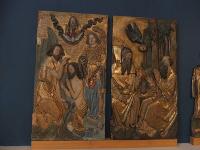
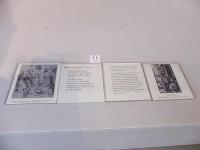
The Baptism of Christ, The visit of St Antony to St Paul in the desert. ~1510
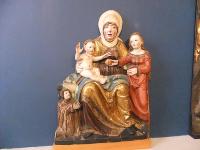
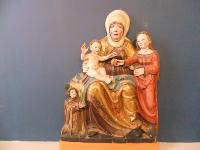
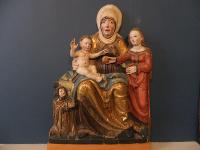
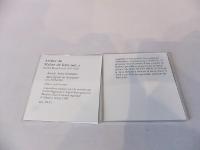
St Anne trinity with a figure of the donor. ~1515-20
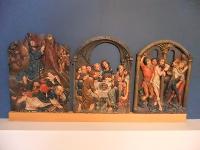
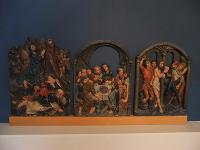
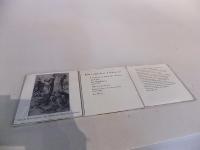
Christ on the Mount of Olives, the Last Supper, The Flagellation
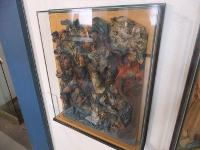


Martyrdom of St Catherine. ~1515-20
Strangely, on the first (second) storey, there was stuff with labels and information in both French and German. This was strange as the more important stuff on level 0 (the ground floor) was not similarly graced with this bilingualism.
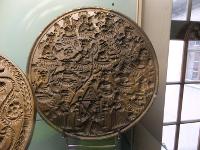
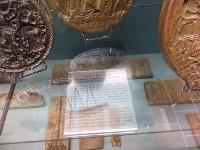
Moulds for Spiced Bread from the convent of Unterlinden
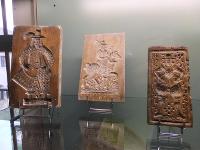
More moulds


Mould for spiced bread: the Sacrifice of Abraham. 1604 and 19th c. (?!?!)
There was also a modern art collection but as predicted it was blah. There was a Renoir - a portrait of Josephe le Cœur
A section of the museum was specifically dedicated to Alsace, and that was nice. I especially liked Alsatian nationalism from the German era.
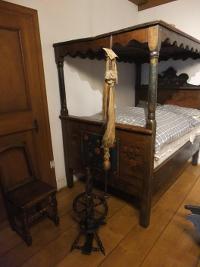
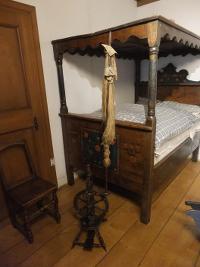
Spinning wheel with hair (?!)
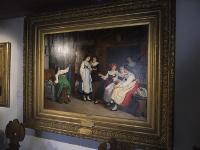
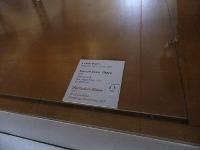
Marriage in Lower Alsace. 1877. Camille Pabst.
Notice the regional clothing
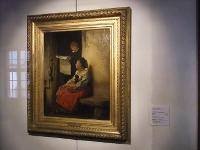
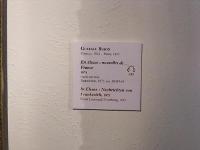
In Alsace: news of France. 1874. Gustave Brion.


Day of the King in Alsace. Gustave Brion. 1865.
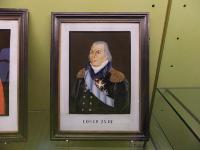
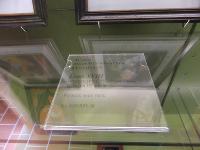
Peculiar image: Louis XVIII. Start of 19th c.

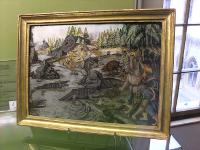
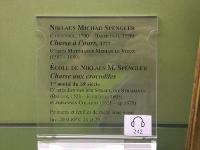
Bear hunt: Niklaus Michad Spengler (1727). Crocodile hunt: School of the same (first half of 18th c.).
This bemused me.

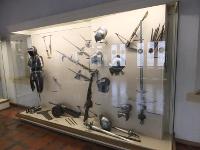

Medieval Weapons

Medieval Weapons closeup
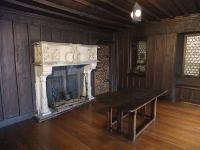
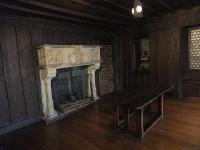
Gothic Room
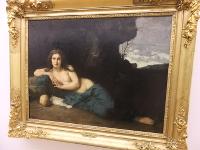
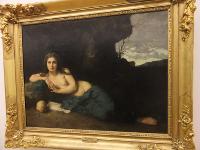

The Penitent Magdalene. 1860. Jean Jacques Henner
She doesn't look very penitent, but I think that's the point
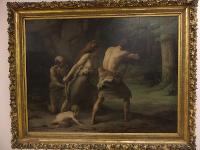

A family in the Stone Age. Emmanuel Benner. 1892
There was still a bit of the museum I hadn't yet explored (and a few gems I'd spotted) but my visit was cut short and I was chased out because the Keepers wanted to have lunch. It was a slight pity but life is a constrained optimization problem, and I decided not to return at 2pm as a Castle awaited me. Addendum: Incidentally the museum was the only place, so far, where people spoke to me in English (I didn't open my mouth so they assumed I didn't speak the language). The other time was at admission: I asked for an English audioguide and the woman switched to English, and the ticket checker used it too.
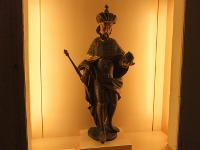
Emperor. End 16th c. Alsace.
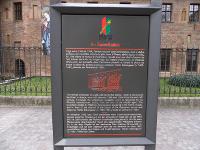
Plaque on the museum building, a former Dominican convent